- Home
- Linda Lael Miller
A Creed Country Christmas
A Creed Country Christmas Read online
A CREED COUNTRY CHRISTMAS
Also available from
LINDA LAEL MILLER
and HQN Books
The Montana Creeds
Logan
Dylan
Tyler
The McKettricks
McKettrick’s Choice
McKettrick’s Luck
McKettrick’s Pride
McKettrick’s Heart
A McKettrick Christmas
The Mojo Sheepshanks series
Deadly Gamble
Deadly Deceptions
The Stone Creek series
The Man from Stone Creek
A Wanted Man
The Rustler
The Bridegroom
And in spring 2010, don’t miss a new crop of McKettrick men in Linda’s brand-new trilogy, McKettricks of Texas!
Tate February
Garrett March
Austin April
LINDA LAEL MILLER
A CREED COUNTRY CHRISTMAS
Dear Reader,
When those hell-raising Creed brothers—Logan, Dylan and Tyler—came home to Big Sky Country to put down roots, the former rodeo cowboys created quite a ruckus with the women. Which raised the question for me and all you readers out there: Where did those rascals learn their rowdy, romancing ways? Relax, my friends, while I take you back to 1910 and Stillwater Springs for a holiday visit with the man behind the legends: Lincoln Creed. This cowboy with a Montana-size heart aims to lasso strong-willed Juliana Mitchell, a woman with a mission and a serious attitude.
I also wanted to write today to tell you about a special group of people with whom I’ve recently become involved. It is The Humane Society of the United States (HSUS), specifically their Pets for Life program.
The Pets for Life program is one of the best ways to help your local shelter: that is to help keep animals out of shelters in the first place. Something as basic as keeping a collar and tag on your pet all the time, so if he gets out and gets lost, he can be returned home. Being a responsible pet owner. Spaying or neutering your pet. And not giving up when things don’t go perfectly. If your dog digs in the yard, or your cat scratches the furniture, know that these are problems that can be addressed. You can find all the information about these—and many other—common problems at www.petsforlife.org. This campaign is focused on keeping pets and their people together for a lifetime.
As many of you know, my own household includes two dogs, two cats and four horses, so this is a cause that is near and dear to my heart. I hope you’ll get involved along with me.
May you be blessed.
With love,
For Jean Woofter
With love and gratitude
Contents
Chapter One
Chapter Two
Chapter Three
Chapter Four
Chapter Five
Chapter Six
Chapter Seven
Chapter Eight
Chapter Nine
Epilogue
Chapter One
Stillwater Springs, Montana
December 20, 1910
The interior of Willand’s Mercantile, redolent of saddle leather and wood smoke, seemed to recede as Juliana Mitchell stood at the counter, holding her breath.
The letter had finally arrived.
The letter Juliana had waited for, prayed for, repeatedly inquired after—at considerable cost to her pride—and, paradoxically, dreaded.
Her heart hitched painfully as she accepted the envelope from the storekeeper’s outstretched hand; the handwriting, a slanted scrawl penned in black ink, was definitely her brother Clay’s. The postmark read Denver.
In the distance, the snow-muff led shrill of a train whistle announced the imminent arrival of the four o’clock from Missoula, which passed through town only once a week, bound for points south.
Juliana was keenly aware of the four children still in her charge, waiting just inside the door of a place where they knew they were patently unwelcome. She turned away from the counter—and the storekeeper’s disapproving gaze—to fumble with the circle of red wax bearing Clay’s imposing seal.
Please, God, she prayed silently. Please.
After drawing a deep breath and releasing it slowly, Juliana bit her lower lip, took out the single sheet folded inside.
Her heart, heretofore wedged into her throat, plummeted to the soles of her practical shoes. Her vision blurred.
Her brother hadn’t enclosed the desperately needed funds she’d asked for—money that was rightfully her own, a part of the legacy her grandmother had left her. She could not purchase train tickets for herself and her charges, and the Indian School, their home and hers for the past two years, was no longer government property. The small but sturdy building had been sold to a neighboring farmer, and he planned to stable cows inside it.
Now the plank floor seemed to buckle slightly under Juliana’s feet. The heat from the potbellied stove in the center of the store, so welcome only a few minutes before when she and the children had come in out of the blustery cold, all of them dappled with fat flakes of snow, threatened to smother Juliana now.
The little bell over the door jingled, indicating the arrival of another customer, but Juliana did not look up from the page in her hand. The words swam before her, making no more sense to her fitful mind than ancient Hebrew would have done.
A brief, frenzied hope stirred within Juliana. Perhaps all was not lost, perhaps Clay, not trusting the postal service, had wired the money she needed. It might be waiting for her, at that very moment, just down the street at the telegraph office.
Her eyes stung with the swift and sobering realization that she was grasping at straws. She blinked and forced herself to read what her older brother and legal guardian had written.
My Dear Sister,
I trust this letter will find you well.
Nora, the children and I are all in robust health. Your niece and nephew constantly inquire as to your whereabouts, as do certain other parties.
I regret that I cannot in good conscience remit the funds you have requested, for reasons that should be obvious to you….
Juliana crumpled the sheet of expensive vellum, nearly ill with disappointment and the helpless frustration that generally resulted from any dealings with her brother, direct or indirect.
“Are you all right, miss?” a male voice asked, strong and quiet.
Startled, Juliana looked up, saw a tall man standing directly in front of her. His eyes and hair were dark, the round brim of his hat and the shoulders of his long coat dusted with snow.
Waiting politely for her answer, he took off his hat. Hung it from the post of a wooden chair, smiled.
“I’m Lincoln Creed,” he said, gruffly kind, pulling off a leather glove before extending his hand.
Juliana hesitated, offered her own hand in return. She knew the name, of course—the Creeds owned the largest cattle ranch in that part of the state, and the Stillwater Springs Courier, too. Although Juliana had had encounters with Weston, the brother who ran the newspaper, and briefly met the Widow Creed, the matriarch of the family, she’d never crossed paths with Lincoln.
“Juliana Mitchell,” she said, with the proper balance of reticence and politeness. She’d been gently raised, after all. A hundred years ago—a thousand—she’d called one of the finest mansions in Denver home. She’d worn imported silks and velvets and fashionable hats, ridden in carriages with liveried drivers and even footmen.
Remembering made her faintly ashamed.
All that, of course, had been before her fall from social grace.
Before Clay, as administrator of their grandmother’s estate, had all but disinherited her.
Mr. Creed dropped his gaze to the letter. “Bad news?” he asked, with an unsettling note of discernment. He might have had Indian blood himself, with his high cheekbones and raven-black hair.
The train whistle gave another triumphant squeal. It had pulled into the rickety little depot at the edge of town, right on schedule. Passengers would alight, others would board. Mail and freight would be loaded and unloaded. And then the engine would chug out of the station, the line of cars rattling behind it.
A full week would pass before another train came through.
In the meantime, Juliana and the children would have no choice but to throw themselves upon the uncertain mercies of the townspeople. In a larger community, she might have turned to a church for assistance, but there weren’t any in Stillwater Springs. The faithful met sporadically, in the one-room schoolhouse where only white students were allowed when the circuit preacher came through.
Juliana swallowed, wanting to cry, and determined that she wouldn’t. “I’m afraid it is bad news,” she admitted in belated answer to Mr. Creed’s question.
He took a gentle hold on her elbow, escorted her to one of the empty wooden chairs over by the potbellied stove. Sat her down. “Did somebody die?” he asked.
Numb with distraction, Juliana shook her head.
What in the world was she going to do now? Without money, she could not purchase train tickets for herself and the children, or even arrange for temporary lodgings of some sort.
Mr. Creed inclined his head toward the children lined up in front of the display window, with its spindly but glittering Christmas tree. They’d turned their backs now, to look at the decorations and the elaborate toys tucked into the branches and arranged attractively underneath.
“I guess you must be the teacher from out at the Indian School,” he said.
Mr. Willand, the mercantile’s proprietor, interrupted with a harrumph sound.
Juliana ached as she watched the children. The storekeeper was keeping a close eye on them, too. Like so many people, he reasoned that simply because they were Indians, they were sure to steal, afforded the slightest opportunity. “Yes,” she replied, practiced at ignoring such attitudes, if not resigned to them. “Or, at least, I was. The school is closed now.”
Lincoln Creed nodded after skewering Mr. Willand with a glare. “I was sorry to hear it,” he told her.
“No letters came since you were in here last week, Lincoln,” Willand broke in, with some satisfaction. The very atmosphere of that store, overheated and close, seemed to bristle with mutual dislike. “Reckon you can wait around and see if there were any on today’s train, but my guess is you wasted your money, putting all those advertisements in all them newspapers.”
“Everyone is sorry, Mr. Creed,” Juliana said quietly. “But no one seems inclined to help.”
Momentarily distracted by Mr. Willand’s remark, Lincoln didn’t respond immediately. When he did, his voice was nearly drowned out by the scream of the train whistle.
Juliana stood up, remembered anew that her situation was hopeless, and sat down again, hard, all the strength gone from her knees. Perhaps she’d used it up, walking the two miles into town from the school, with every one of her worldly possessions tucked into a single worn-out satchel. Each of the children had carried a small bundle, too, leaving them on the sidewalk outside the door of the mercantile with Juliana’s bag.
“There’s a storm coming, Miss—er—Mitchell,” Lincoln Creed said. “It’s cold and getting colder, and it’ll be dark soon. I didn’t see a rig outside, so I figure you must have walked to town. I’ve got my team and buckboard outside, and I’d be glad to give you and those kids a ride to wherever you’re headed.”
Tears welled in Juliana’s eyes, shaming her, and her throat tightened painfully. Wherever she was headed? Nowhere was where she was headed.
Stillwater Springs had a hotel and several boarding houses, but even if she’d had the wherewithal to pay for a room and meals, most likely none of them would have accepted the children, anyway.
They’d hurried so, trying to get to Stillwater Springs before the train left, Juliana desperately counting on the funds from Clay even against her better judgment, but there had been delays. Little Daisy falling and skinning one knee, a huge band of sheep crossing the road and blocking their way, the limp that plagued twelve-year-old Theresa, with her twisted foot.
Lincoln broke into her thoughts. “Miss Mitchell?” he prompted.
Mr. Willand slammed something down hard on the counter, causing Juliana to start. “Don’t you touch none of that merchandise!” he shouted, and Joseph, the eldest of Juliana’s pupils at fourteen, pulled his hand back from the display window. “Damn thievin’ Injuns—”
Poor Joseph looked crestfallen. Theresa, his sister, trembled, while the two littlest children, Billy-Moses, who was four, and Daisy, three, rushed to Juliana and clung to her skirts in fear.
“The boy wasn’t doing any harm, Fred,” Lincoln told the storekeeper evenly, rising slowly out of his chair. “No need to raise your voice, or accuse him, either.”
Mr. Willand reddened. “You have a grocery order?” he asked, glowering at Lincoln Creed.
“Just came by to see if I had mail,” Lincoln said, with a shake of his head. “Couldn’t get here before now, what with the hard weather coming on.” He paused, turned to Juliana. “Best we get you to wherever it is you’re going,” he said.
“We don’t have anyplace to go, mister,” Joseph said, still standing near the display window, but careful to keep his hands visible at his sides. Since he rarely spoke, especially to strangers, Juliana was startled.
And as desperate as she was, the words chafed her pride.
Lincoln frowned, obviously confused. “What?”
“They might take us in over at the Diamond Buckle Saloon,” Theresa said, lifting her chin. “If we work for our keep.”
Lincoln stared at the girl, confounded. “The Diamond Buckle…?”
Juliana didn’t trust herself to speak without breaking down completely. If she did not remain strong, the children would have no hope at all.
“Mr. Weston Creed said he’d teach me to set type,” Joseph reminded Juliana. “Bet I could sleep in the back room at the newspaper, and I don’t need much to eat. You wouldn’t have to fret about me, Miss Mitchell.” He glanced worriedly at his sister, swallowed hard. He was old enough to understand the dangers a place like the Diamond Buckle might harbor for a young girl, even if Theresa wasn’t.
Lincoln raised both hands, palms out, in a bid for silence.
Everyone stared at him, including Juliana, who had pulled little Daisy onto her lap.
“All of you,” Lincoln said, addressing the children, “gather up whatever things you’ve got and get into the back of my buckboard. You’ll find some blankets there—wrap up warm, because it’s three miles to the ranch house and there’s an icy wind blowing in from the northwest.”
Juliana stood, gently displacing Daisy, careful to keep the child close against her side. “Mr. Creed, we couldn’t accept…” Her voice fell away, and mortification burned in her cheeks.
“Seems to me,” Lincoln said, “you don’t have much of a choice. I’m offering you and these children a place to stay, Miss Mitchell. Just till you can figure out what to do next.”
“You’d let these savages set foot under the same roof with your little Gracie?” Mr. Willand blustered, incensed. He’d crossed the otherwise-empty store, shouldered Joseph aside to peer into the display window and make sure nothing was missing.
The air pulsed again.
Lincoln took a step toward the storekeeper.
By instinct, Juliana grasped Mr. Creed’s arm to stop him. Even through the heavy fabric of his coat, she could feel that his muscles were steely with tension—he was barely containing his temper. “The children are used to remarks like that,” she said quietly, anxious to keep the peace. “They know they aren’t savages.”
“Get into the wagon,” Linc
oln said. He didn’t pull free of Juliana’s touch, nor did he look away from Mr. Willand’s crimson face. “All of you.”
The children looked to Juliana, their dark, luminous eyes liquid with wary question.
She nodded, silently giving her permission.
Almost as one, they scrambled for the door, causing the bell to clamor merrily overhead. Even Daisy, clinging until a moment before, peeled away from Juliana’s side.
After pulling her cloak more closely around her and raising the hood against the cold wind, Juliana followed.
LINCOLN WATCHED THEM GO. He’d hung his hat on one of the spindle-backed wooden chairs next to the stove earlier, and he reached for it. “There’s enough grief and sorrow in this world,” he told the storekeeper, “without folks like you adding to it.”
Willand was undaunted, though Lincoln noticed he stayed well behind the counter, within bolting distance of the back door. “We’ll see what Mrs. Creed says, when you turn up on her doorstep with a tribe of Injuns—”
Lincoln shoved his hat down on top of his head with a little more force than the effort required. His wife, Beth, had died two years before, of a fever, so Willand was referring to his mother. Cora Creed would indeed have been surprised to find five extra people seated around her supper table that night—if Lincoln hadn’t left her with enough bags to fill a freight car at the train depot before stopping by the mercantile. She was headed for Phoenix, where she liked to winter with her kinfolks, the Dawsons.
“I’ll be back tomorrow if I get the chance,” he said, starting for the door. With that storm coming and cattle to feed, he couldn’t be sure. “To see if any letters came in on today’s train.”
Willand glanced at the big regulator clock on the wall behind him. “My boy’s gone to the depot, like always, and he’ll be here with the mail bag any minute now,” he said grudgingly. “Might as well wait.”

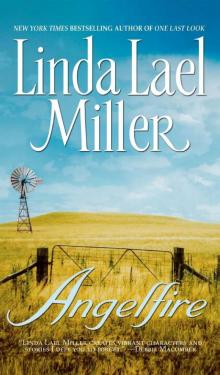 Angelfire
Angelfire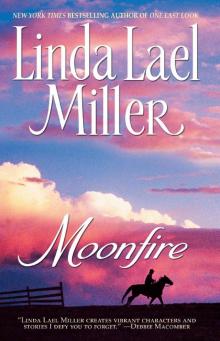 Moonfire
Moonfire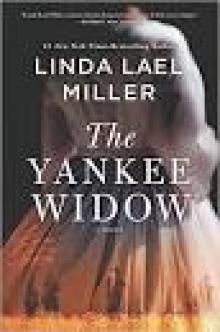 The Yankee Widow
The Yankee Widow The Cowboy Way
The Cowboy Way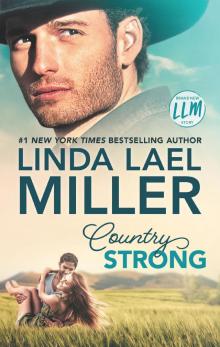 Country Strong--A Novel
Country Strong--A Novel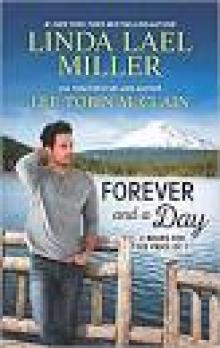 Forever and a Day
Forever and a Day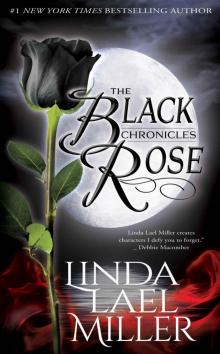 The Black Rose Chronicles
The Black Rose Chronicles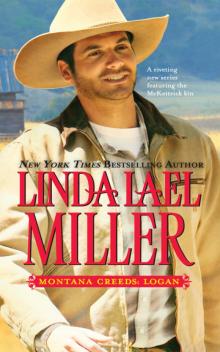 Montana Creeds: Logan
Montana Creeds: Logan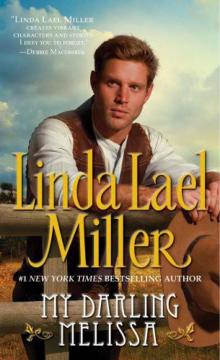 My Darling Melissa
My Darling Melissa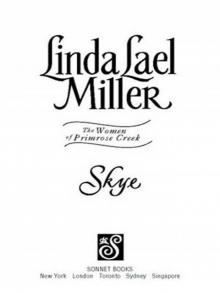 Skye
Skye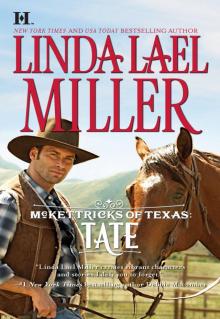 McKettricks of Texas: Tate
McKettricks of Texas: Tate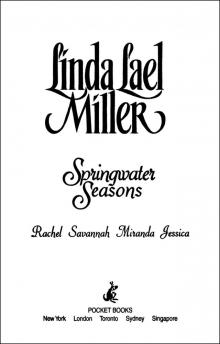 Springwater Seasons
Springwater Seasons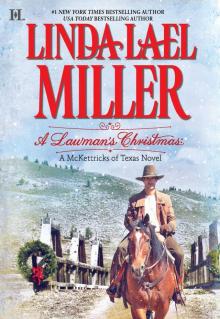 A Lawman's Christmas
A Lawman's Christmas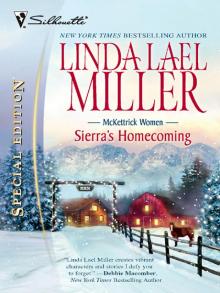 Sierra's Homecoming
Sierra's Homecoming![Parable, Montana [4] Big Sky Summer Read online](http://i1.bookreadfree.com/i/03/22/parable_montana_4_big_sky_summer_preview.jpg) Parable, Montana [4] Big Sky Summer
Parable, Montana [4] Big Sky Summer One Last Weekend
One Last Weekend A Stone Creek Collection, Volume 2
A Stone Creek Collection, Volume 2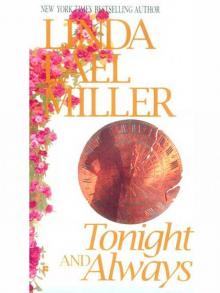 Tonight and Always
Tonight and Always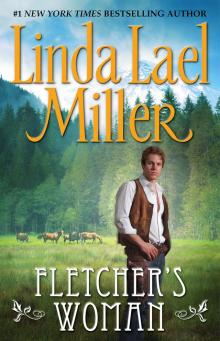 Fletcher's Woman
Fletcher's Woman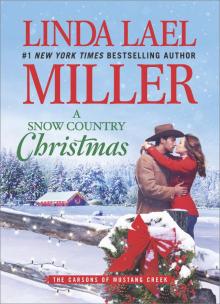 A Snow Country Christmas
A Snow Country Christmas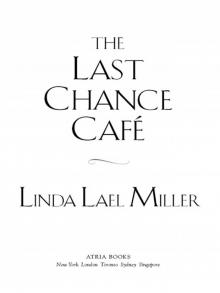 The Last Chance Cafe
The Last Chance Cafe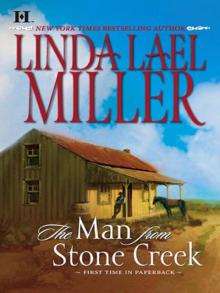 The Man from Stone Creek
The Man from Stone Creek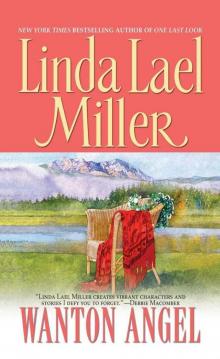 Wanton Angel
Wanton Angel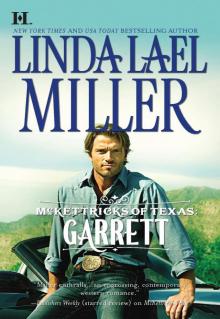 McKettricks of Texas: Garrett
McKettricks of Texas: Garrett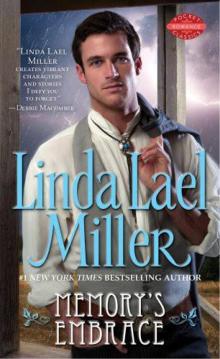 Memory's Embrace
Memory's Embrace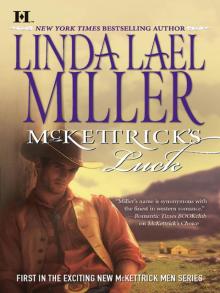 McKettrick's Luck
McKettrick's Luck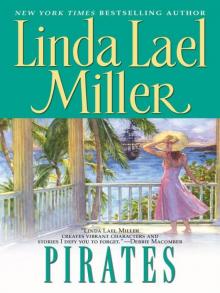 Pirates
Pirates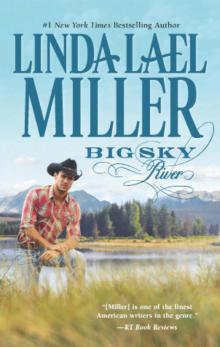 Big Sky River
Big Sky River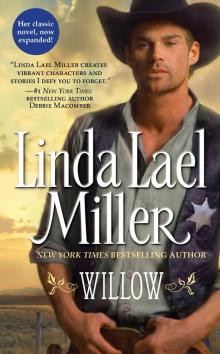 Willow: A Novel (No Series)
Willow: A Novel (No Series)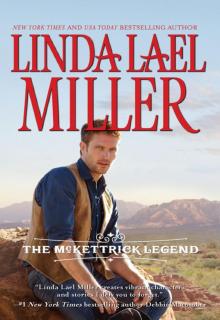 The McKettrick Legend: Sierra's HomecomingThe McKettrick Way (Hqn)
The McKettrick Legend: Sierra's HomecomingThe McKettrick Way (Hqn)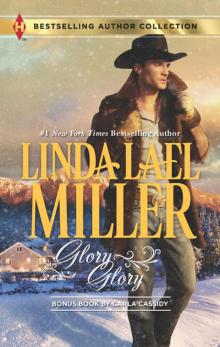 Glory, Glory: Snowbound with the Bodyguard
Glory, Glory: Snowbound with the Bodyguard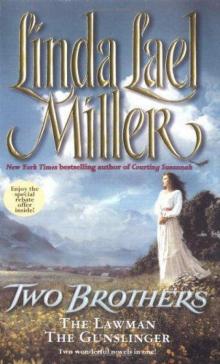 Two Brothers
Two Brothers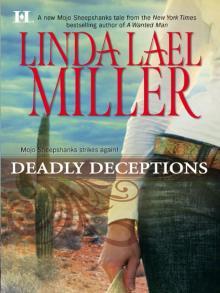 Deadly Deceptions
Deadly Deceptions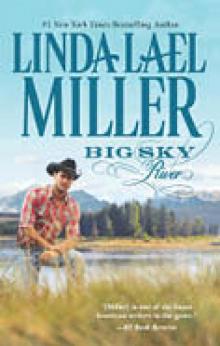 Big Sky Secrets
Big Sky Secrets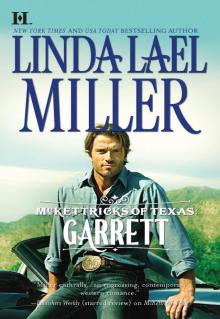 Garrett
Garrett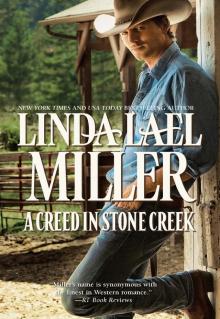 A Creed in Stone Creek
A Creed in Stone Creek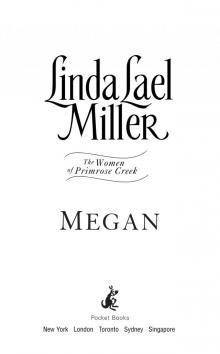 Megan
Megan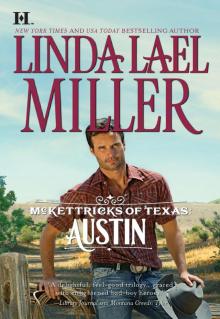 McKettricks of Texas: Austin
McKettricks of Texas: Austin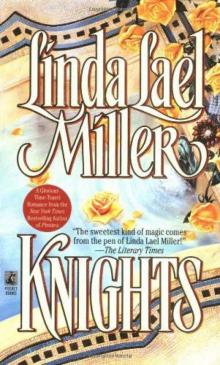 Knights
Knights High Country Bride
High Country Bride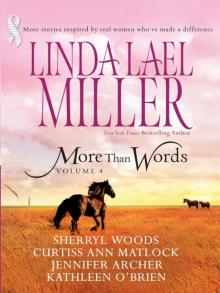 More Than Words Volume 4
More Than Words Volume 4 Glory, Glory
Glory, Glory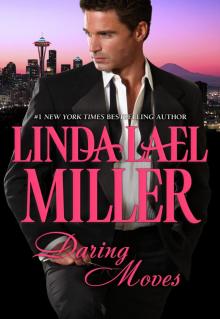 Daring Moves
Daring Moves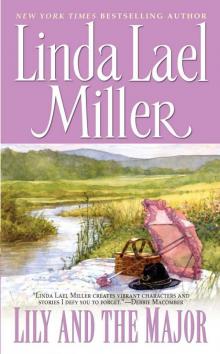 Lily and the Major
Lily and the Major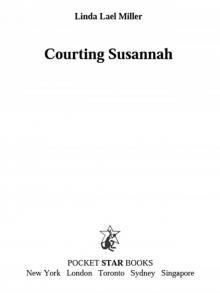 Courting Susannah
Courting Susannah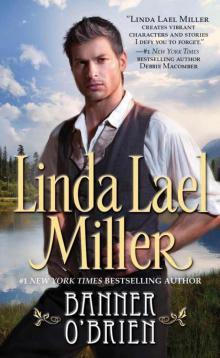 Banner O'Brien
Banner O'Brien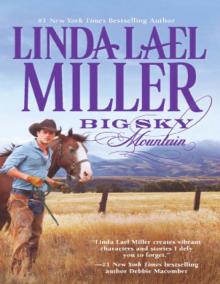 Big Sky Mountain
Big Sky Mountain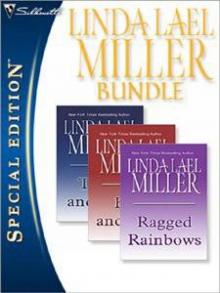 Linda Lael Miller Bundle
Linda Lael Miller Bundle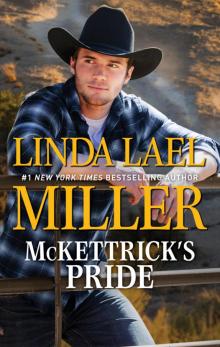 McKettrick's Pride
McKettrick's Pride A Stone Creek Collection Volume 1
A Stone Creek Collection Volume 1 A Wanted Man
A Wanted Man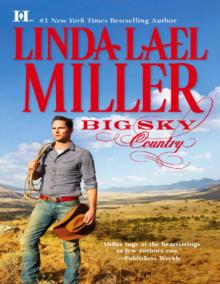 Big Sky Country
Big Sky Country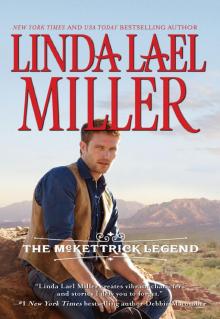 The McKettrick Legend
The McKettrick Legend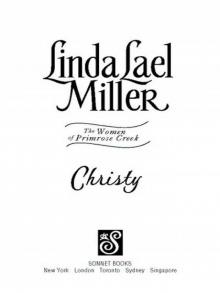 Christy
Christy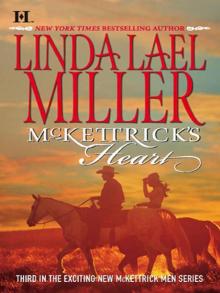 McKettrick's Heart
McKettrick's Heart Resurrection
Resurrection Arizona Heat
Arizona Heat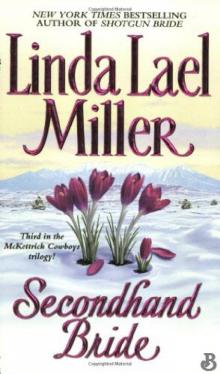 Secondhand Bride
Secondhand Bride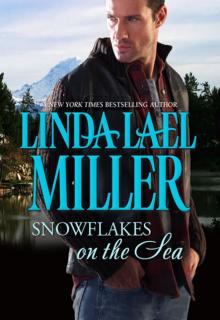 Snowflakes on the Sea
Snowflakes on the Sea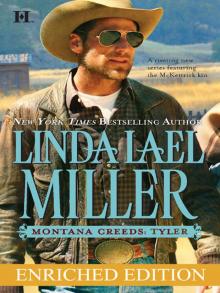 Montana Creeds: Tyler
Montana Creeds: Tyler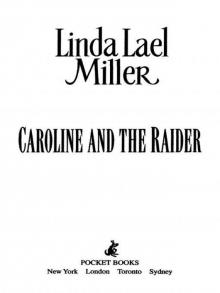 CAROLINE AND THE RAIDER
CAROLINE AND THE RAIDER A Proposal for Christmas: State SecretsThe Five Days of Christmas
A Proposal for Christmas: State SecretsThe Five Days of Christmas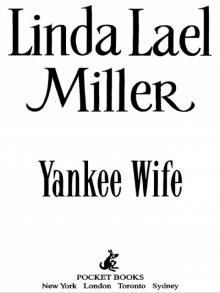 Yankee Wife
Yankee Wife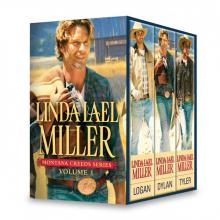 Linda Lael Miller Montana Creeds Series Volume 1: Montana Creeds: LoganMontana Creeds: DylanMontana Creeds: Tyler
Linda Lael Miller Montana Creeds Series Volume 1: Montana Creeds: LoganMontana Creeds: DylanMontana Creeds: Tyler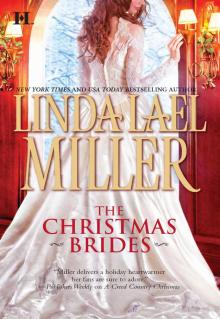 The Christmas Brides
The Christmas Brides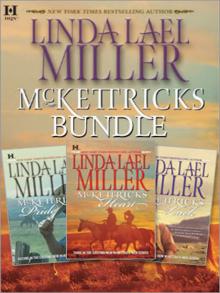 McKettricks Bundle
McKettricks Bundle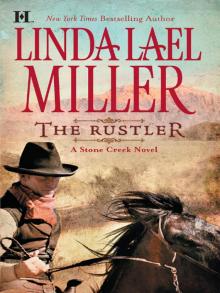 The Rustler
The Rustler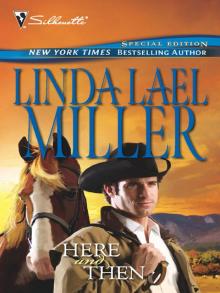 Here and Then
Here and Then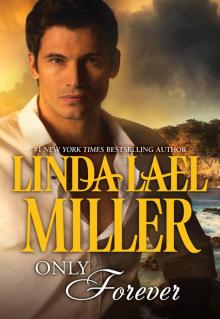 Only Forever
Only Forever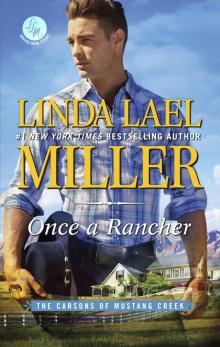 Once a Rancher
Once a Rancher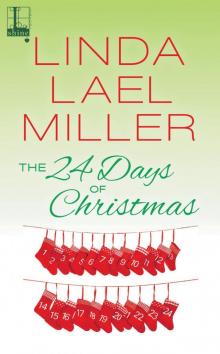 The 24 Days of Christmas
The 24 Days of Christmas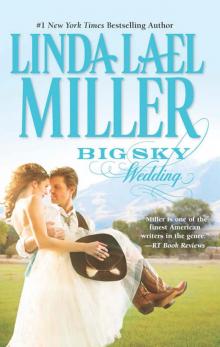 Big Sky Wedding
Big Sky Wedding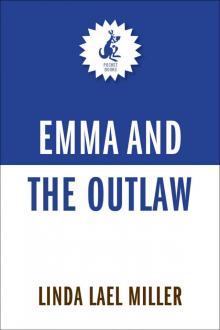 Emma and the Outlaw
Emma and the Outlaw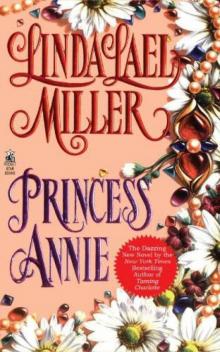 Princess Annie
Princess Annie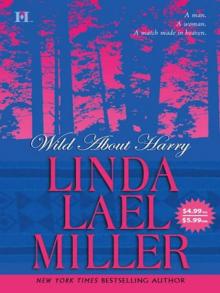 Wild About Harry
Wild About Harry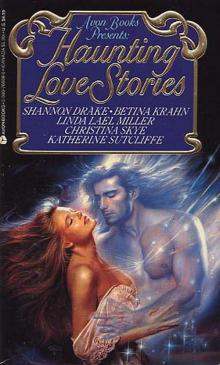 That Other Katherine
That Other Katherine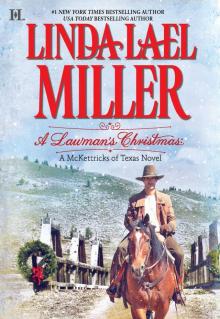 A Lawman's Christmas: A McKettricks of Texas Novel
A Lawman's Christmas: A McKettricks of Texas Novel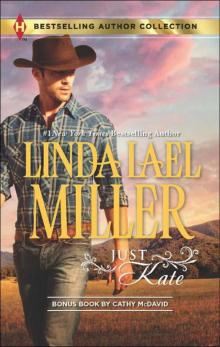 Just Kate: His Only Wife (Bestselling Author Collection)
Just Kate: His Only Wife (Bestselling Author Collection)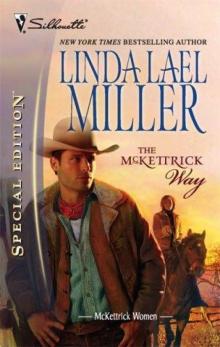 The McKettrick Way
The McKettrick Way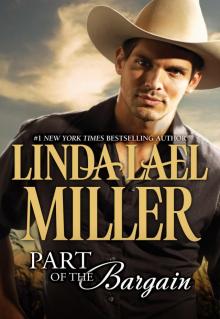 Part of the Bargain
Part of the Bargain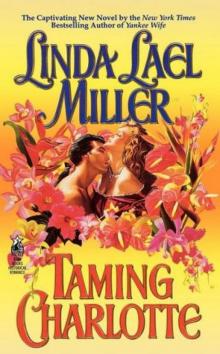 Taming Charlotte
Taming Charlotte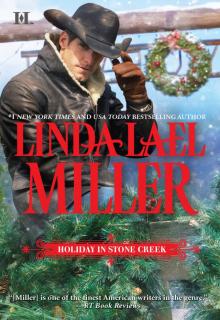 Holiday in Stone Creek
Holiday in Stone Creek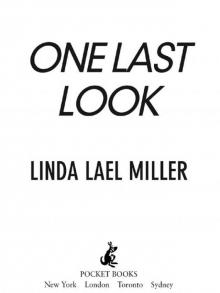 One Last Look
One Last Look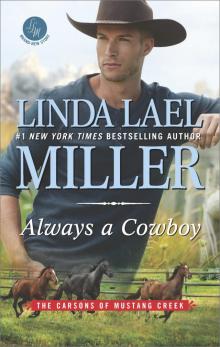 Always a Cowboy
Always a Cowboy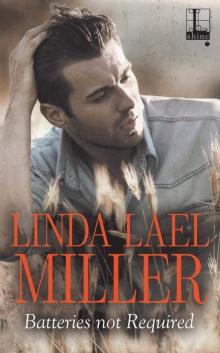 Batteries Not Required
Batteries Not Required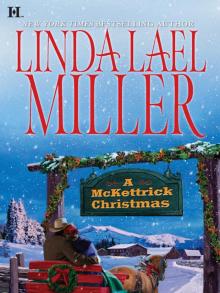 A McKettrick Christmas
A McKettrick Christmas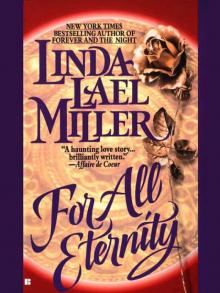 For All Eternity
For All Eternity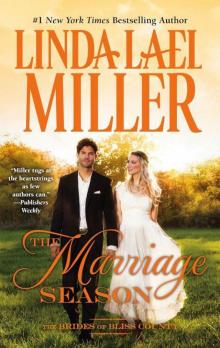 The Marriage Season
The Marriage Season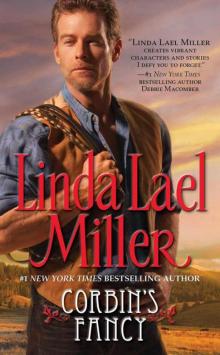 Corbin's Fancy
Corbin's Fancy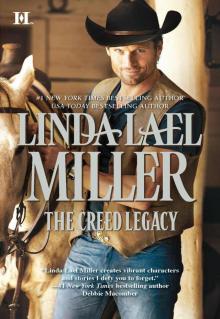 The Creed Legacy
The Creed Legacy Springwater Wedding
Springwater Wedding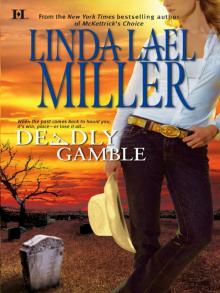 Deadly Gamble
Deadly Gamble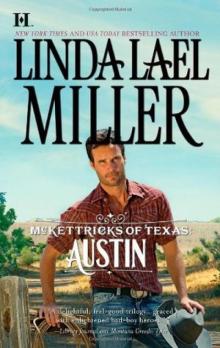 Austin
Austin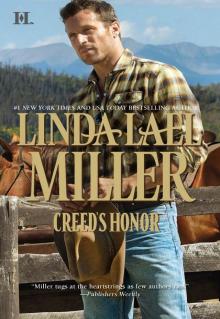 Creed's Honor
Creed's Honor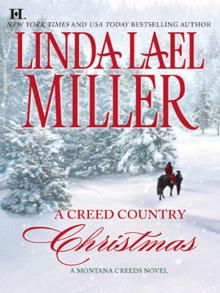 A Creed Country Christmas
A Creed Country Christmas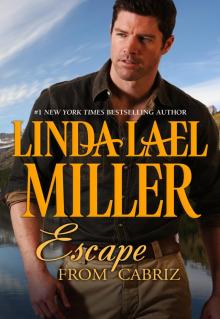 Escape from Cabriz
Escape from Cabriz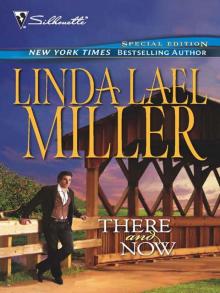 There and Now
There and Now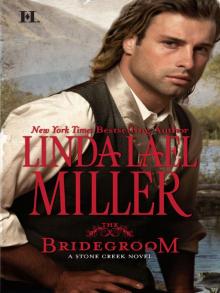 The Bridegroom
The Bridegroom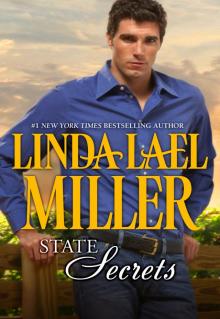 State Secrets
State Secrets Bridget
Bridget